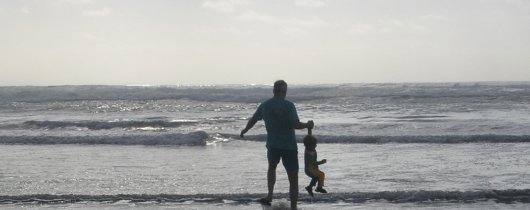The Lost Generation by Mark Stone
May 2025. We moved around a lot when I was young, as my professionally restless, professor dad looked for his right place in the academic community. Eventually that proved to be the University of Maryland, but I was in 5th grade before I'd attended the same school two years in a row. North Carolina, Nevada, back to North Carolina, then Pennsylvania, Georgia, Maryland, back to Georgia, and finally and permanently back to Maryland. Consequently the abode to which I emotionally anchored as home was not the untrustworthy locale of my parents' dwelling, but the permanence I found in my grandparents' homes, respectively in Carlisle, South Carolina and Tucker, Georgia.
Growing up the men that I admired most were my two grandfathers.
My father's dad was born in 1904 in rural South Carolina. His father, known as "Big Daddy" in the family lore, fathered twelve children, and my grandfather was the oldest male. When he turned 13, Big Daddy told him, "Son, we've got too many mouths to feed here, so you're gonna have to get on out and make it on your own."
So my grandfather took his 8th grade education to the Seaboard Railroad, where he worked for the next 52 years, first as a worker on a repair crew, and later as the foreman of a repair crew. As foreman, he was the only white member of that crew, which doubtless helped him become the most color blind man I have ever known. His best friend and perpetual fishing buddy was a member of that crew, and it never occurred to my grandfather that the difference in their skin color should matter at all.
Those 52 years saw the deepest depths of the Jim Crow era, especially in places like South Carolina. Somehow that never infected my grandmother nor grandfather. In the 1940s my grandmother used to drive the black sharecroppers who were their neighbors into to town to register to vote. When the Klan showed up on her front lawn in full hooded garb to threaten her, my aunt reports that my grandmother pointed her finger at one she recognized in the group and said, in full fiery Southern Baptist voice, "Jimmy Lee, what in tarnation are you doing? I go to church with your momma. Now y'all get yourselves on home before you make fools of yourselves." And so they left.
My mother's dad was born in 1896 in what was then called the Wyoming Territory. His father had fled Finland, then a Russian province, to avoid being drafted in the Czarist army. Like many Scandinavian immigrants of the 19th Century, he came through Ellis Island, and then by rail to settle in northwestern America. Soon after my grandfather was born, the family secured some homestead land near Red Lodge, Montana, and relocated there to take up cattle ranching.
My grandfather lived the full frontier life. Grew up in a log cabin. Read books at night by kerosine lantern. Made spending money by taking furs from the Lakota Indians up the mountains into town, trading them for dry goods the Lakota wanted, and pocketing a portion of the proceeds as a transaction fee.
With no intention of becoming a cattle rancher, he volunteered for the Navy at 18, served in the Pacific during World War I, and earned a degree in Mechanical Engineering after the war. From there he entered the Merchant Marine as an engine room engineer, where he worked for the next several decades until taking a desk job with the Department of Transportation to finish out his career. Notable moments in his career: during World War II the U.S. spent considerable effort on new merchant ship designs that were more agile at dodging submarines and torpedoes. The only way to test this? Send prototypes out into the Atlantic and see what happened. That was my grandfather. After the war, his experience with steam engines landed him on the U.S.S. Savannah, the only nuclear-powered merchant ship the U.S. has ever had.
History calls them the Lost Generation, but I have come to realize they are the last of the frontier generations. During their lifetimes these two men were on the cultural, economic, and sometimes literal frontier of what was happening in American life. One taught me how to fish. The other taught me how to use a slide rule. Both were grounded, humble, and endlessly patient with an eager young grandson just trying to learn. Everything I know about the value of hard work, the value of doing things with your hands, and the importance of treating others fairly and empathetically, started with my grandfathers, not just in the stories they told but the conduct they modeled.


